If you’re looking to learn from a true marketing expert, you’re in for a treat. Today’s guest is strategic marketing expert Paul Watkins. In addition to his 25 years of marketing experience, Paul is a thought leader in developing strategies that interact with customer motivation and personal branding. Paul gives tons of insight into creating a cohesive image for you and your brand. We discuss awesome topics like the best speaking groups for up-and-coming professional speakers, attracting key traffic, and constructing a DIY focus group. Tune in!
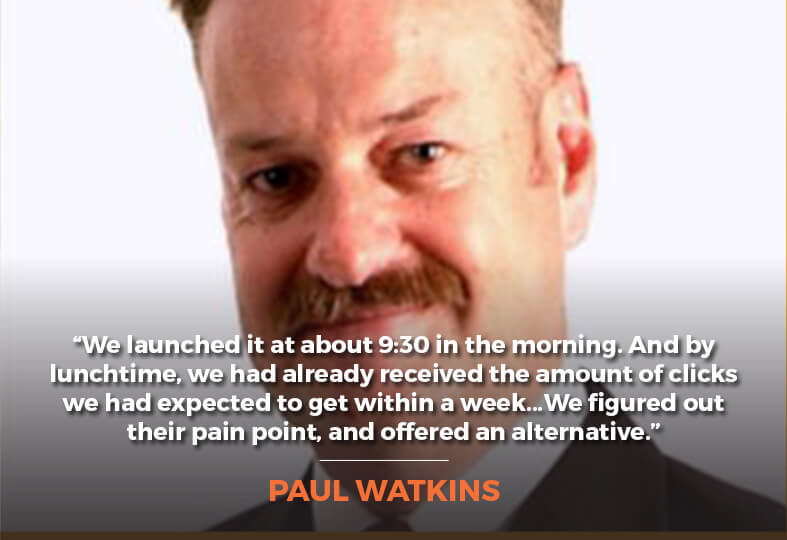
Transcript
Welcome to Marketing Speak, I’m Stephan Spencer, your host, and I have with us today Paul Watkins. Paul is a strategic marketing expert in the education space, he’s been doing marketing for 25 years, I’ve known Paul for 15 years. He’s also a professional speaker, a consultant, and an author, so welcome Paul, thanks for joining us.
Great to be here.
I thought to start off, if you could just kind of share fun and unexpectedly marketing campaign, something that could be recent, it could be a while ago. Just something that is pretty darn cool.
Around 75% of folks didn’t really enjoy their jobs.
Certainly. One that comes to mind is one that we’ve done in recent times. Working in the education sector, we’re targeting people who want to re-educate themselves and move onto a new career, especially in jobs that didn’t exist 15 or 20 years ago. So, we spent a bit of time looking at motivations to change jobs in focus groups with existing students and other research we could find on the whole concept of changing careers. And it was pretty clear that around 75% of folks didn’t really enjoy their jobs. Or would like to do something different than what they are doing. So recently we started a campaign called “Hate Mondays?” and the obvious alternative to that was “I love Mondays” and if you clicked on that campaign it is what you went through.
It offered a few alternatives with a few training programs that you could go to launch the career in the direction you want it to. The hit rate on it was miles beyond expectation. We launched it obviously on a Monday, at about [9:30] in the morning, and by lunchtime, we had already received the number of clicks we had expected to get within a week. We just had to make sure we could cope with the inquiries. But yeah, it was miles beyond expectation, I think the message of it was that we spent the time working out exactly what the true motivation was. It’s not to study an exact designed course or to study for a new degree. Their real motivation is that they didn’t wanna be where they were at the moment. We figured out the pain point and offered an alternative to it. But we were certainly caught unaware with that reaction to it.
You really hit the nail on the head. You really came up with a pain point that hit the target market. For listeners, first off, is to understand your avatar, your persona you’re trying to market to. I remember hearing about Nike or Adidas or one of the big shoe brands, and they really wanted to understand their target market so they defined these personas, they gave them names, they had life-size pictures of them, and they had this room where the life-sized photos were on the wall and there were lockers next to these life-size photos and you could open up the locker and see Jenny or whoever and what her locker looked like and what was stuck to the door and what sort of things were in her locker, it was so cool. It’s kind of like, get inside their head, really get into that persona.
Exactly, we’re not targeting the whole world, we’re just targeting those who have a genuine interest in what our product is. And then obviously because we used online on Facebook, it’s not that difficult to form a demographic around that in terms of exactly who you’re trying to get to. And what does that person actually look like. And then target that person specifically. The trick of course is that there were mechanisms there to get their name and email address or their cellphone address. And now the trick is to turn them into firm inquiries. We’ve got a phenomenally qualified database to work with now, as a result.
We’re not targeting the whole world, we’re just targeting those who have a genuine interest in our product.
So say you get the lead in through Facebook or other channels, you get that lead to opt-in to giving their email address, and you move them down the sales funnel.
That’s exactly it. At first, it was a small ebook they could download. They just have to give their name and email. And nobody has a problem doing that, it’s almost standard now I think. That creates a database, and we start a dialogue with them. If they send a cell phone number, we can communicate with them by text; if they do send a cell phone number, you’ve got to be careful that you don’t overdo it and invade privacy issues. So far the success rate has been very high, very chatty. And we’re using language that they may respond to, such as “So you hate your job, then?”. Probably not quite that bad. But yeah, that’s exactly the sales funnel. Going wide-ish, based on what you believe the demographic could be and then secure them. Then make sure there’s enough interesting dialogue to go on so you don’t lose them for quite some time. Because they may not be ready to swap over right now. They could be a year away from being a customer. And we need to make sure we are with them for that whole year.
There’s like a 90-day contact frequency that is recommended best practice for sales, and that would apply here, too, right?
That’s the famous 90-day contact for a year based on whatever form of contact type that is, whether it’s a newsletter or a phone call, an email, a text, yeah, never break that 90-day rule. We kind of exceed that, badly. But as long as the information is relevant, and there’s an opt-out opportunity, we don’t seem to lose very many along the way. Unless they opt out, they’re going to hear from us a lot. And it’s going to be interesting. They’re going to enjoy the contact, that’s the way we like to look at it. All my team that take the calls and send out the texts and so forth are taught to treat them like their best friends and no jargon, it’s all just chatty. It’s manageable. There are many ways to manage it as the database grows.
Well, what a fun campaign. I’m sure somebody who is grumbling in the office first thing on Mondays, they see that campaign in their newsfeed it gives them a chuckle, and that’s a good way to start the relationship. I remember this one campaign from years ago. It was a case study on MarketingSherpa, it was a genius campaign. It was “Let’s all Blame the Marketing Director” and it was done as a barbershop quartet song that they had commissioned an actual barbershop quartet to write and sing. And so you’d get these direct mail pieces.
Now, this is an old school, they used direct mail for this. So they sent out this thing, and in a semi-transparent envelope with the sheet music, and you can see quite clearly the title of that song was “Let’s all blame the marketing director”, it was sent to marketing directors. This was in the early 2000s when the .com bubbles burst, and marketing directors were getting a lot of heat and were blamed for things. And so this resonated with the audience like crazy. And then there was a reply card to just drop it into the mailbox to get the cd of the song.
A lot of people don’t understand marketing, so it’s easy to blame the marketing director.
I can totally understand that. It’s very popular that the most common statement is “blame marketing”; if anything goes wrong, blame marketing, it must be their problem. Low revenue, it must be marketing. What about the product? It doesn’t matter, it must be marketing. And I think the reason for that is a lot of people don’t understand marketing, so it’s easy to blame them. It’s not a tangible thing, you can’t go to a store and say “3 boxes of marketing, please!”. I totally understand, I would open it.
They just crushed it with the response rate and made a multiple on their investment. It was genius. The bottom line here is that you’ve got to be remarkable, you’ve got to be different.
Exactly. And you can’t focus too much on your product or your service, because that’s kind of the result of trying to get into their mind, it’s not the reason you want to try to get into their mind in the first place. There aren’t that many remarkable products out there in the first place. So you get into their mind first, exactly as you said, the sales funnel, get them to do something that interacts with you, and then you can take them down the line of what their ultimate choice might be, especially if it’s a big investment. An in the education space it’s a very big investment. Not only are you enrolling in a program with a fee, but you’re giving up your income. So the ultimate cost is enormous. That’s not something you read in the paper at 9 o clock and decide to enroll at 10 o clock, that doesn’t happen. So any big-ticket item you’ve got to have that long-term view of the relationship.
What do you do to understand what is going on in the heads of the target audience, do you do focus groups, do you do surveys, what do you do?
We tend to put a lot of time into focus groups in conversations with individuals. You might have 20 people total in the classroom, but you have to talk to all 20 of them, they are individual people at the end of the day. But there are no questions, there are common factors in their decision-making. And you look at what they’re truly trying to achieve as a result. So focus groups would be the main way that we would research. In the industry, there are a few academics who’ve done a bit of research and have done a fair bit of the work for you, but really for your own brand, you’ve got to spend time with them and understand them. It’s not questions like “Why did you choose us?”, but more like “what are you doing in your spare time? What is your living arrangement? Are you still living with your parents or whatever?” It all makes a difference because it gives you such a very good picture of if you had to create a cutout of that person you’ve got it in mind then, what they look like, what they’re doing with their time, what their personal traits are. Online activity is so incredibly focused now it just makes your work so much easier. And far cheaper, it just costs so much less to get it right. The cost is tiny compared to the result you get.
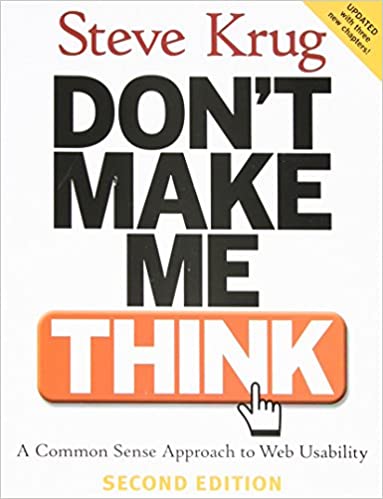
That’s the thing, when people hear, focus groups, their mind starts to travel down like “Oh, this is going to get expensive, I’m going to have to hire a professional firm to do it and do it at a user testing lab, and all this. And it’s like “No!” You can do it totally on the cheap. There’s a whole chapter dedicated to focus groups done on the cheap in a fantastic book called “Don’t make me think” by Steve Krug, and you could do a focus group for as little as a couple of hundred bucks, get 5-10 people in the room where you pay them $20, $25, $50, something cheap for a couple of hours or a half-day and you can get the most amazing insight into how they think, how they interact with your website, what their problems are, what their motivations are.
That’s exactly it. You’ve really got to find that pain point. What problem are you solving for them. What we do is literally walk them to the classroom and do it ourselves with an observer who’s slightly independent, who might look at things differently than I might look at them. And you can do it with retail, and retail is in a staggeringly competitive environment. You can still do it with your customers. Put on a wine and cheese at 530 after your store is closed, and they’ll come in. Offer them something. You can easily get them into a conversation. People love their opinions being asked. People don’t hold back if you ask them a question “Tell me 3 things we can improve,” you’re going to hear 50. The cost is almost trivial to how much you would gain. Even if you do bring in an outside firm, I believe almost every dollar would pay for itself over and over again. Every dollar you paid you’d probably save $10 on your advertising spend. If you don’t know your customers, you can’t really target them successfully.

I mentioned one book I really like, “Don’t make me think” but there are so many others out there that are just awesome. What are some of your favorite books?
I have a very different favorite author in the marketing space, and that is Seth Godin, I believe he’s written about 11-12 different books, I’ve read them all anyway. Been reading them over for years, and I subscribe to his daily blog. There are some little pearls of wisdom, because, it just gets you thinking in a different direction. He doesn’t say “Here are 5 things you can do to improve”, he just puts you into the mindset of there’s another way to look at things, another way to get you inside the mind of your client, and I think that’s a great way to do it.
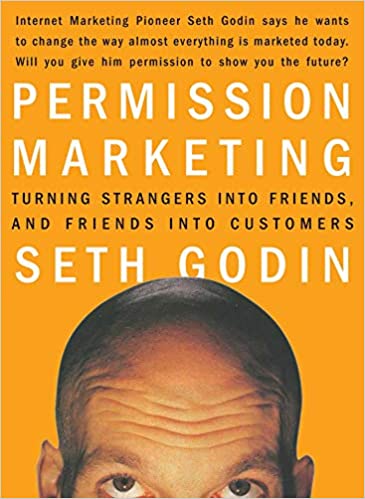
Seth Godin’s book, I believe the first one I read was Permission Marketing; it still sticks with me and I still totally get that you’ve got to get your client’s permission to talk to them. I think “Hate Mondays” a great example of it. We got their permission by getting inside their mind, we’ve got their name and email address, and if they opt out they are out. So as long as we can keep them. His book that he wrote called All Marketers are Liars is one that I particularly enjoy. I think my wife agrees that it is so true. You’ve got to tell a story. You’ve got to make your business like a person. Have a personality. A reason for existence. You’re going to want to deal with it because it’s a fun thing to deal with or it is a problem solver for you. So if I had to pick out a single author it would have to be Seth Godin because he can adjust my thinking. Rather than point out techniques he counters your thinking. I think that marketing is changing all the time. I think that customers are being bombarded with too much now. So how do get through that? And it’s getting really really hard.
Well, it’s a paradigm shift. It’s not about some clever technique it is about adding massive amounts of value into your prospect’s life and into their business and into their career, their relationship, whatever it is, that space that you’re fitting the product into.
One thing, Stephan, is to make your product remarkable or your service remarkable. So the purple cow thing when you stand up in a crowd, you’re not just another one on the shelf. And that’s not easy, it comes back again to personality. You’ll buy a product based on its, kind of what it stands for if you like. A real example out there would be Swatches by any stretch. That’s still the one that everybody wants. That’s because of the reputation and persona it’s built around itself. And that’s a really hard thing to achieve and to maintain. You have to constantly keep the customer so excited that they’ll talk about you. That’s a challenge of note. I think where I am in the education space or somewhere around 40% of our students are referrals from existing students, and that tells us we’re on the right track in building a remarkable product. But you’ve actually got to play that, you can’t just assume word of mouth will happen. What a different strategy for word of mouth, and our development is definitely working. Last year our referral rate was 30% and in the current year, it’s been 40% so we know it’s been working. But it’s a labor-intensive process because you’ve got to make sure they’re happy.
Well, it’s not just a remarkable product, it’s remarkable marketing too because Seth Godin’s definition of remarkable is simply that it is worth remarking about. It doesn’t have to be the best, it doesn’t have to be the most interesting, the most useful, the most helpful, the most value-added, it just has to have something.
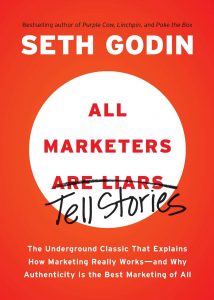
Just something about it that you want to talk about, yeah. It’s a huge challenge, especially when you’ve got a product that is somehow controlled or related or somehow very similar to your competitors. The question is what does make it remarkable. And we have to find out what that thing is, and it won’t be the obvious thing. That’s what I’ve learned over the years. Just because it’s bigger isn’t better. It might be bigger but nobody cares. The question is what makes that thing remarkable. And it’s a huge challenge. If you get it right, it works; if you don’t get it right, keep working on it.
What would be your favorite remarkable campaign that is not yours, but is out in the world crushing it?
I can think of one here in New Zealand that goes back many many many years but is still talked about a lot. What I like about the face of it, is a negative benefit. It’s for an oven cleaner; I can’t think of a less glamorous product, an oven cleaner. Most of the time there are ones where you spread it on the oven, wait 15 minutes, 10 minutes, whatever, and came back and it cleaned your oven. The problem was they sometimes didn’t work. And this campaign was someone cleaning the oven, scrubbing the oven, and someone goes up to her and says, ‘Oh, we’ve got a better product here that you should be using!” And she says “Aww rubbish, they are all exactly the same and none of them work.” The person says “Yes, but ours is different. With ours, you leave it overnight.” “Really?” And obviously, you see a before and after and it makes a difference. And that product became a 90% market shareholder.
What was interesting was surely with anything to do with household cleaning, the shorter the time it takes to be the key benefit. And of course, they promote the concept that it’s overnight. And I never forgot that. And it must be 30 years old. What I think is incredibly remarkable is I’m pretty sure that if you put on any of the products overnight you would have seen the same results. They had just decided to pick up on that feature. That if you leave it for 12 hours and not 10 minutes, you might find it comes out a little bit better. That’s such a good example of where the product fundamentally didn’t have an advantage. But they turned it into one and of course, everybody else who came out with it afterward, they say “Ah, they are copying!”. And let’s say some clever person came up with that. They’re a big one I’ve always remember, I’ve always tried to come up with that.
Counterintuitive.
That’s the point that really impresses me. You see a cleaner that’s faster than 30 seconds, you go “Wow!”. Overnight? Really? So that’s one I’ve never forgotten, and I think it’s a very good example of an advantage that was never probably an advantage in the first place.
It’s like selling a weight loss cure “that only takes 2 years!”.
Right. I remember the consumer magazine that tests consumer products that did a survey on all of the exercise programs, the ab machines, the one that you spin sideways on, there are hundreds of exercise machines out there, ranging from $100 – 10,000. Half of them are endorsed by celebrities. So they bought a selection and tested every one of them over some period of time. Their conclusion was simple. Every one of them will work if you use it. There is no advantage to a product. It’s all to do with the – just make sure you actually use the thing. It’s coming up with those ideas, the overnight oven cleaner. So if any of you out there listening if you can come with your own version of the “ours works overnight” I think that is the answer.
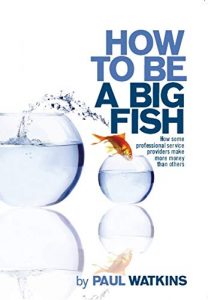
You’re a professional speaker as well as an author. And I would like you to kind of share what this has done for you because I think has put you in a thought leadership position to be able to travel around and give presentations and get paid for it and have a book that you authored. It’s kind of a nice 1-2 punch. I’m a professional speaker myself, and I’m an author as well. So share a little bit about thought leadership through speaking and writing, I know you’ve been a long-time member of the national speaker’s association. How did that help you?
I think it’s a couple of things. There’s, of course, the sort of adage that if you’ve written the book on it you must be an expert. And that’s a pretty well-held thought, really. And if you want to go down the speaker route, you really have to have a book. And vice versa. Especially if you’re going down the route of self-publishing, if you speak about it, you’ll end up selling books. If you have a book to start with, you’re going to get more speaking engagements. It’s a circular thing, really. And also if you are going to be speaking, it doubles your income. 300 people in the audience, they’re going to engage you to buy a copy of the book for each of their delegates at the same time. But they do go hand in hand and are very difficult to separate in my opinion. So if you want to establish a position for yourself out there as a leader in whatever your niche, you can talk about it and they’ll take notes but if they can buy the book off you and put it on their shelf and you’ve signed it, suddenly you’ve become a bit of an expert. I think also adding to that is you have to recognize the niche that you’re an expert in. The smaller the niche, the bigger fish you can be within that small niche. Challenge you in that space. If you say you’re a speaker in marketing, that’s really broad. If you say you’re a speaker in online marketing, well that’s narrowed it a little bit, but then if you say that I’m a speaker in search engine optimization that’s narrowed it considerably. And then you’re starting to build it up a little.
I wrote a book on this! I’ve actually written 3 books, but one of them is actually titled “How to Be a Big Fish“, and fundamentally you reduce the size of the pond, and by definition, you’re going to be a bigger fish. So your question is what is that smaller pond that I’m prepared to dive into and become the absolute leader, recognized leader, in that field. And I won’t get tripped up by going sideways or taking speaking experiences that are not quite in my niche, I just stay in my little tiny but lucrative, because if they ever want someone in that space, you’re the only one, and you wrote the book on it so you must be the expert. And I think that’s kind of key thing. Another thing from a personal development point of view, since I’ve worked with so many industries, people that make garages and next time you’ve got someone in the photographic space and the next audience is someone in the space, it really forces you to understand your industries. I mean they’ve all got the same issues, but they are just slightly different. You can learn from it. But going back to the speaker and how to become a thought leader if you like is just constantly reduce the size of your pond. Don’t pick one that isn’t sustainable, you’ve got to pick one that will keep going and be big enough that it can sustain a profession for you. And that’s what I’ve found. Even in a tiny country like New Zealand, only 4.5 million people, you could say that it would be too narrow thinking, but it’s not, because let’s take in your case, your expertise is such in search engine optimization, every company needs that, so you’re not really limiting yourself at all, you’re just focusing on a key thing. And that becomes where your expertise goes and they look to you as a leader in the area.
The smaller the niche, the bigger fish you can be within that small niche. Share on XSEO is still a pretty broad area. A lot of SEO’s out there, and there’s an opportunity to work in video SEO or local SEO or news SEO, shopping, product eCommerce SEO, image SEO. Lots of opportunities of search engines, you could become the expert in optimizing for Youtube, that’s the #2 search engine. Absolutely. Niche down, and find a way to become the big fish, that’s a great takeaway. My oldest daughter is a professional speaker. I don’t know if I’ve told you this before.
When did she start at that?
She started talking about her virtual pet site, neopetsfanatic.com, this was really popular back in the day, she’s had it for about a decade now. She monetized it with Google Adsense, and began speaking at conferences about it as a 16-year-old, so that’s kind of cool. And now, after a handful of speaking gigs under her belt, she says “I want to fine-tune my skills at speaking, should I go to toastmasters?” And I’m thinking, well, if you want to learn a topic or skill, you need to go to people who are already professionals, they are already experts, you don’t want to learn from a bunch of-
Well-meaning amateurs.
That was very politically correct of you, thank you. So you really need to be part of something such as a National Speakers Association chapter and not just rely on toastmasters. So give me your experience with NSA versus toastmasters versus some other speaker training.
I was a member of toastmasters for something like 20 years, and it was a lot of fun. It’s as much a social event as it was a speaking event. We went along every week and dropped monthly with an advanced club. I can highly recommend that if you’re not comfortable standing in front of an audience and you can’t control your nerves that well, or you’re not really sure if your mechanics of speaking are right. Do you arm-in-arm too much? Are your hands in the right position? Do you maintain eye contact or not, a whole lot of technical bits. I really do recommend it as a way to work out those issues. In this case, it became a very social occasion, and I made a few long-term friends because of it. Only recently did I stop going.
National Speakers is a different thing. Obviously the majority there are already professional speakers, if it’s part-time, full time, or even just every now and again. It’s kind of raising the bar 10 fold. Assuming you know all the basics about speaking, then it just takes you to another level. You also of course learn the professional side of it, such as how to charge fees, how to get engagements in the first place, how to behave in front of clients. None of that is taught it toastmasters. Toastmasters is purely how to stand in front of an audience. And how to use humor effectively. Because in National Speakers you’re all friends and you can share experiences yet you learn quite dramatically.
This is my recommendation. Join Toastmasters and get your speaking okay. Join national speakers and it’s up to you whether you carry it on with toastmasters. It depends on what you’re learning from it. I certainly got up to the point where I wasn’t learning anything from toastmasters, I just enjoyed the meetings and they were fun. But National Speakers takes it to another level. And watching other presentations too. I subscribe to TED talks and I watch large numbers of them. And I don’t only watch them because they are interesting, but I look at the speaker and think “Oh, that was interesting the way they used PowerPoint,” or “That was interesting what they did there”. You think to yourself, “yeah I think I could do that”. There’s always someone out there that’s better than you, I think that’s what you’ve got to keep in mind. What does make them better than you? I like that aspect of it. Never be arrogant enough to think you know it all.

I think speaker training where you learn from an amazing expert is a valuable thing to add as well to your curriculum. Not just an NSA meeting or an international conference but also going to an intensive week-long training program, I know there’s like speaking empire here in the US, Dave Van Hoose runs a speaker training program. It’s quite good, I’ve attended a 3-day or 4-day event of it. There’s Ted McGrath with his speaker’s academy, Brian Tracy has a speaking program, speaker training. Who else? Brendan Bouchard has a speaking training. So a lot of choices. Really going full immersion for a number of days.
I have actually slightly gone down that path, I attended a speaker’s conference in Australia, and they run workshops where you learn certain techniques. But it’s in a group. One particular speaker impressed me a lot. And he spoke on a subject similar to mine, so I engaged him privately to do one-on-one tuition. I have to say that it cost a lot. But you basically get your money back in one speaking opportunity so it’s almost not here nor there. It might seem like a lot when you write it out, but it only takes 1 speaking engagement to get your feet back. Or a couple. I just found it immensely valuable. I already had the skill to a certain level, but he was able to put quite a bit of polish on it. From his point of view and a 1-on-1. It might sound expensive, but it will pay itself back manifold.
You could do private 1-on-1, you could do a group training or coaching. One aspect I think is particularly fascinating in terms of speaking to an audience or anybody in terms of persuasion and so forth is using neurolinguistic programming. I remember learning some techniques on NLP or neurolinguistic programming that were mindblowing, such as – it seems so simple! – but then it goes directly into your mind as an attendee, you just pick up on it on a subconscious level, and it just works. The guy taught us how to talk about the past and the competition and the negative stuff and the problem and so forth from the left side of the stage (to the attendee’s perspective), and then when you’re talking about the product or the solution or the future, you’re on the right-hand side of the stage (from the attendee’s perspective).
It just makes so much sense; it just went directly into my subconscious, I didn’t even realize it, he didn’t tell us he was going to do it, he just did it throughout the presentation and then ended it by asking us “So which side of the stage was the positive side, and which side was the negative?” And everybody just intuitively new without giving us any clues. It was awesome. Having an arsenal of these sorts of NLP techniques to take it to a whole other level on your professional speaking.
Exactly. And it does pay to go through these exercises and get the tuition and the expertise because you’ll be invited back and you can put your feet up and then you become an expert on it, and you become the most popular, and your fees become quite good. It’s like anything, anything requires training, even though people believe you can just jump on a stage and talk. And some can, but it’s rare. The majority I find of the best ones have got someone standing behind them that have taught them somewhere along the way. They just won’t admit it.
Get somewhere inside the mind of your client.
Let’s wrap up with one final question, and I wanted to make it a real heavy hitter. So what would be a high-impact strategy or tactic – if you like you could just do a little lightning round of ten tips or whatever that will have a profound impact on the listener’s marketing.
Well, some relates to what we were talking about before. The obvious thing is to get somewhere inside the mind of your client. And I know that sounds like a very cliche thing to say, but I measure that nothing else is going to work. Too many marketing conversions revolve around “Should we be in the press?”, “Should we be on Facebook?”, “Should we make a website?” – that’s nonsense. You can’t have that conversation unless you understand who your customer is and what their mindset is. The fastest way and easiest way to do that is focus groups. You’re not comfortable doing it yourself? Get somebody to do it, maybe even a senior year university student or grad student that won’t charge a lot but understands how to do this, get inside their mind. If you’re on a tight budget, I think that’s a great way to do it. And the revelations are quite extreme.
You’ve also definitely got to have an open mind. The one word or statement I hate hearing the most is “Oh, we’ve always done it this way”. “Oh we’ve been running these ads in the press for 10 years and it’s been working.” Well, I wouldn’t be talking to you now if it were working, you’ve obviously called me in for some reason. Because it has lost its impact. Consumers change; they change daily. The internet had such a massive impact on that. And I think that’s something people underestimate. I mean everything has changed. People choose you now, you don’t choose them. You used to run ads in the paper and they’d walk through and go, “Wow, look at that ad!”. Now, people are searching for you. Or your product, or your service. So they control it. I think that’s a mindset we really have to grapple with. The customer is looking for you now. You are not looking for a customer anymore. I know that sounds a bit global to say that but, the more I finally got that into my mind, the more I finally clicked with how we, depending on the industry, go about doing this.
Understand your customer, understand that the marketing is changing, buy in the expertise or learn it yourself. It’ll make a big difference.
Practical steps – run a focus group. It may not be to anything, but I’d be stunned if that was to happen. Get a bunch of your customers together, there are many ways to do that. And then run another one. And then run another one. And then run another one. One result is not a population; it may not be enough to tell you what you’re trying to do. The other thing that I’ve learned in recent times is I don’t fully understand the online space. I know that when I run ads on Twitter, Facebook, whatever, they do seem to have an impact. I don’t really know why, and that annoys me somewhat. So I have to go back to school myself. You have to be prepared to re-learn what you thought you already learned. Especially with the changing attitudes of people and the competition already out there. Because what worked last year isn’t going to work this year. And you’ve got try and figure that out. They’re not very specific things, in answer to your question. But I think they are just: understand your customer, understand that the marketing is changing, buy in the expertise or learn it yourself. It’ll make a big difference.
Management doesn’t want change, that’s something I’ve learned over the years, and you’ve got to take them along for the ride to make them understand there’s another way to do things. I think as a final point to bring back as we started on the “Hate Mondays?” campaign, there’s no mention of our product, there’s no mention of our service, there’s not even any mention of who we are. It’s all to do with finding that pain point and getting into the mindset of your customer. And then you can start that funnel. You’ve figured out who they are, how you can engage them in some way – not even in relation to your product! Get permission to talk to them and you can carry them along for the ride. Almost the longer it takes to get to the relationship to the point of commitment, the more loyal and genuine they will be as a customer.
If they see your campaign on Monday and buy on Tuesday, they probably won’t come back on Wednesday. Six months, you’ve taken them along for the ride, had meaningful dialogue the whole way through, some way. Don’t be precious about telling them things – a quick example I’ve worked with mortgage brokers who are terrified to tell the consumer too much because they won’t come to them for expertise or advice. That’s nonsense. They have to run things on their site, like “10 Things to Consider before You Go to Your Lender” or “5 Things You Should Be Concerned About In Your Mortgage”. Tell them! You’re the expert! You’re not giving them enough to go and do it themselves, but they go “Far out, that man or woman knows absolutely what they are doing!” And you build that trust. And as I’ve said, if it takes 6 months to build that relationship, they’ll be with you for 10 years! If it takes 1 day to build a relationship, be worried. That’d probably be my final comment.
Good stuff. Well thank you, Paul, I really appreciate it. Some valuable insights, and thanks again!
Very much enjoyed it. Thanks!
Important Links
Your Checklist of Actions to Take










About Paul Watkins
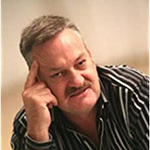 Growing a business ain’t like it used to be. Paul Watkins has owned, franchised and consulted on business growth for 3 decades. But it is clear to Paul that getting the basics right in your industry, focusing on becoming famous in your chosen nice, and then understanding new technologies as friends and not the enemy is the key.
Growing a business ain’t like it used to be. Paul Watkins has owned, franchised and consulted on business growth for 3 decades. But it is clear to Paul that getting the basics right in your industry, focusing on becoming famous in your chosen nice, and then understanding new technologies as friends and not the enemy is the key.
Paul lives in New Zealand, where his interests outside of business include being an amateur military historian.







Leave a Reply